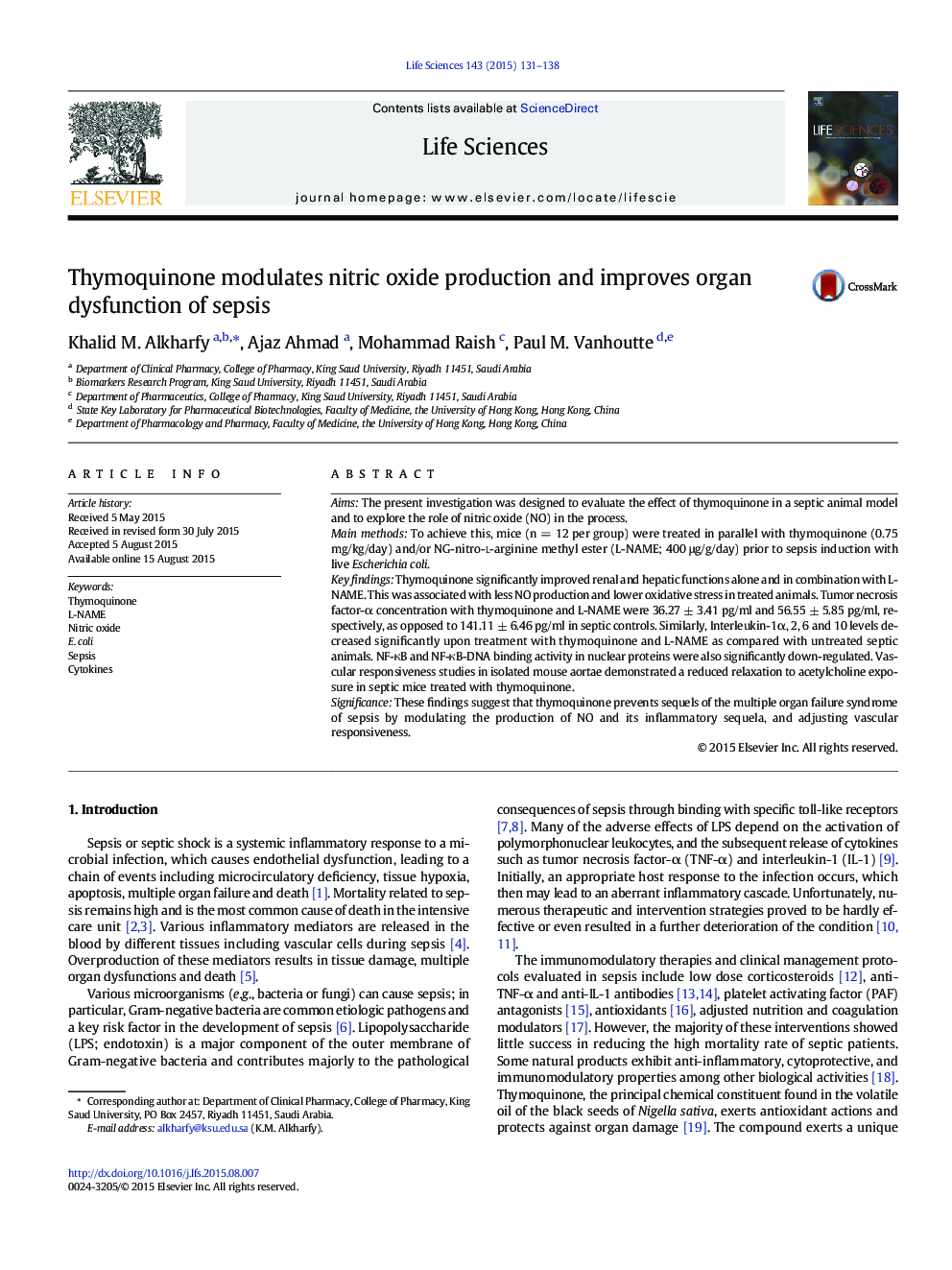| کد مقاله | کد نشریه | سال انتشار | مقاله انگلیسی | نسخه تمام متن |
|---|---|---|---|---|
| 2550708 | 1560585 | 2015 | 8 صفحه PDF | دانلود رایگان |
AimsThe present investigation was designed to evaluate the effect of thymoquinone in a septic animal model and to explore the role of nitric oxide (NO) in the process.Main methodsTo achieve this, mice (n = 12 per group) were treated in parallel with thymoquinone (0.75 mg/kg/day) and/or NG-nitro-l-arginine methyl ester (L-NAME; 400 μg/g/day) prior to sepsis induction with live Escherichia coli.Key findingsThymoquinone significantly improved renal and hepatic functions alone and in combination with L-NAME. This was associated with less NO production and lower oxidative stress in treated animals. Tumor necrosis factor-α concentration with thymoquinone and L-NAME were 36.27 ± 3.41 pg/ml and 56.55 ± 5.85 pg/ml, respectively, as opposed to 141.11 ± 6.46 pg/ml in septic controls. Similarly, Interleukin-1α, 2, 6 and 10 levels decreased significantly upon treatment with thymoquinone and L-NAME as compared with untreated septic animals. NF-κB and NF-κB-DNA binding activity in nuclear proteins were also significantly down-regulated. Vascular responsiveness studies in isolated mouse aortae demonstrated a reduced relaxation to acetylcholine exposure in septic mice treated with thymoquinone.SignificanceThese findings suggest that thymoquinone prevents sequels of the multiple organ failure syndrome of sepsis by modulating the production of NO and its inflammatory sequela, and adjusting vascular responsiveness.
Journal: Life Sciences - Volume 143, 15 December 2015, Pages 131–138
